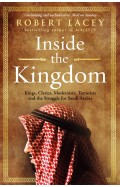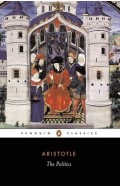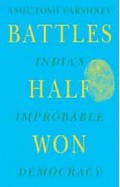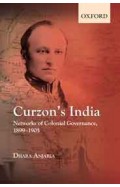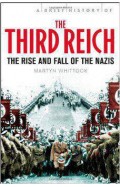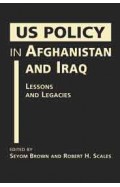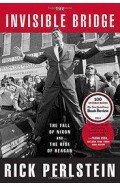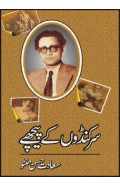How to Think Politically: Sages, Scholars and Statesmen Whose Ideas Have Shaped the World
By: james bernard murphy
-
Rs 3,415.50
- Rs 3,795.00
- 10%
You save Rs 379.50.
Due to constant currency fluctuation, prices are subject to change with or without notice.
'A wonderful introduction to history's most influential scribblers' - Steven Pinker
What is truly at stake in politics? Nothing less than how we should live, as individuals and as communities. This book goes beyond the surface headlines, the fake news and the hysteria to explore the timeless questions posed and answers offered by a diverse group of the 30 greatest political thinkers who have ever lived.
Are we political, economic, or religious animals? Should we live in small city-states, nations, or multinational empires? What values should politics promote? Should wealth be owned privately or in common? Do animals also have rights? There is no idea too radical for this global assortment of thinkers, which includes: Confucius; Plato; Augustine; Machiavelli; Burke; Wollstonecraft; Marx; Nietzsche; Gandhi; Qutb; Arendt; Nussbaum, Naess and Rawls.
In each brief chapter, the authors paint a vivid portrait of these often prescient, always compelling political thinkers, showing how their ideas grew out of their own dramatic lives and times and evolved beyond them. Now more than ever we need to be reminded that politics can be a noble, inspiring and civilising art. And if we want to understand today's political world, we need to understand the foundations of politics and its architects. This is the perfect guide to both.
'A wonderful introduction to history's most influential scribblers' - Steven Pinker
What is truly at stake in politics? Nothing less than how we should live, as individuals and as communities. This book goes beyond the surface headlines, the fake news and the hysteria to explore the timeless questions posed and answers offered by a diverse group of the 30 greatest political thinkers who have ever lived.
Are we political, economic, or religious animals? Should we live in small city-states, nations, or multinational empires? What values should politics promote? Should wealth be owned privately or in common? Do animals also have rights? There is no idea too radical for this global assortment of thinkers, which includes: Confucius; Plato; Augustine; Machiavelli; Burke; Wollstonecraft; Marx; Nietzsche; Gandhi; Qutb; Arendt; Nussbaum, Naess and Rawls.
In each brief chapter, the authors paint a vivid portrait of these often prescient, always compelling political thinkers, showing how their ideas grew out of their own dramatic lives and times and evolved beyond them. Now more than ever we need to be reminded that politics can be a noble, inspiring and civilising art. And if we want to understand today's political world, we need to understand the foundations of politics and its architects. This is the perfect guide to both.
How to Think Politically: Sages, Scholars and Statesmen Whose Ideas Have Shaped the World
By: james bernard murphy
Rs 3,415.50 Rs 3,795.00 Ex Tax :Rs 3,415.50
Zubin Mehta: A Musical Journey (An Authorized Biography)
By: VOID - Bakhtiar K. Dadabhoy
Rs 892.50 Rs 1,050.00 Ex Tax :Rs 892.50
The Origins of Political Order From Prehuman Times to the French RevolutioN
By: Francis Fukuyama
Rs 4,045.50 Rs 4,495.00 Ex Tax :Rs 4,045.50
Battles Half Won : Indias Improbable Democracy
By: Ashutosh Varshney
Rs 3,565.75 Rs 4,195.00 Ex Tax :Rs 3,565.75
Curzon's India: Networks of Colonial Governance, 1899-1905
By: Dhara Anjaria
Rs 845.75 Rs 995.00 Ex Tax :Rs 845.75
A Brief History of The Third Reich: The Rise and Fall of the Nazis - Paperback
By: Martyn Whittock
Rs 1,695.75 Rs 1,995.00 Ex Tax :Rs 1,695.75
US Policy in Afghanistan and Iraq
By: Seyom Brown & Robert H. Scales
Rs 2,375.75 Rs 2,795.00 Ex Tax :Rs 2,375.75
The Peacemakers: India and the Quest for One World
By: Manu Bhagwan
Rs 722.50 Rs 850.00 Ex Tax :Rs 722.50
The Invisible Bridge: The Fall of Nixon and the Rise of Reagan
By: Rick Perlstein
Rs 1,827.50 Rs 2,150.00 Ex Tax :Rs 1,827.50
The Churchill Complex: The Rise and Fall of the Special Relationship
By: Ian Buruma
Rs 2,800.75 Rs 3,295.00 Ex Tax :Rs 2,800.75
Zubin Mehta: A Musical Journey (An Authorized Biography)
By: VOID - Bakhtiar K. Dadabhoy
Rs 892.50 Rs 1,050.00 Ex Tax :Rs 892.50
How to Think Politically: Sages, Scholars and Statesmen Whose Ideas Have Shaped the World
By: james bernard murphy
Rs 3,415.50 Rs 3,795.00 Ex Tax :Rs 3,415.50












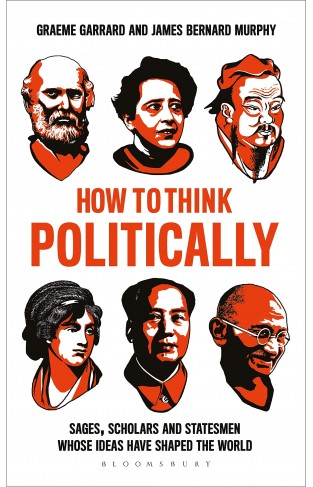
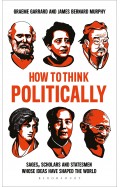
-120x187.jpg?q6)






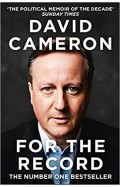
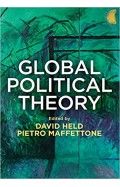
-120x187.jpg?q6)
